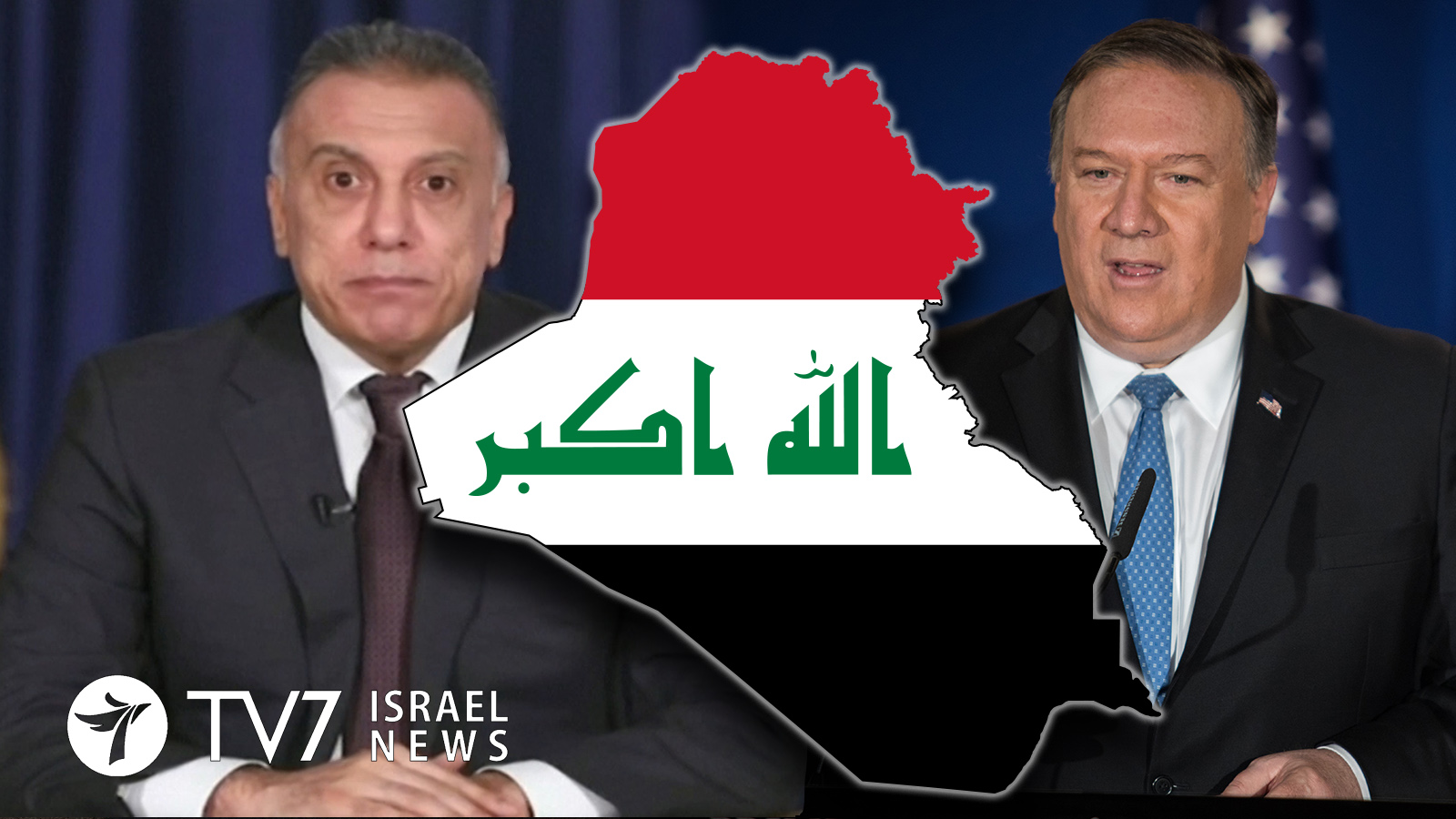Iraq’s Prime Minister-Designate Mustafa al-Kadhimi is now in his third week of trying to form a government, which is based on a sectarian quota system.
The former intelligence chief is the third candidate to have been appointed by President Barham Salih within 10 weeks, as Baghdad struggles to replace a government that was toppled last year after months of deadly mass protests.
U.S. Secretary of State Mike Pompeo said that the Administration of President Donald Trump is monitoring the new Iraqi leader’s government-building efforts “closely.”
During a press briefing at the State Department, the top U.S. diplomat went on to insist that “Iraqi leaders must put aside the sectarian quota system and make compromises that lead to government formation for the good of the Iraqi people, and for the partnership between the United States and Iraq.”
Interestingly, it was Washington who introduced the quota system to Iraq following the 2003 U.S. invasion as a means to ensure equal representation of Kurds, Shi’ite and Sunni Muslims among Baghdad’s leadership. But as the Washington Post points out, “Some analysts have argued it promotes (emphasis added) sectarian divisions because it motivates political parties to mobilize people behind ethnic and sectarian causes.”
The United Kingdom-based openDemocracy political website noted that the quota system was advanced when the Administrator of the Coalition Provisional Authority of Iraq Paul Bremer “appointed pro-invasion Iraqi exiles based on identity backgrounds in the provisional government known as the Iraqi Governing Council,” and that the practice “shapes the power sharing between the identity–based political parties” which continued “throughout the country’s interim and transitional governments.”
“Such ethno-sectarian share of power motivated regional players with power determinations such as Iran and Saudi Arabia to exploit Iraq as a proxy battlefield throughout the years,” postulated openDemocracy.
Relations between Washington and Baghdad have been strained over Iraq’s failure to protect the U.S. forces stationed there. In March, David Schenker, who is the Assistant Secretary for Near Eastern Bureau and the State Department’s top diplomat for the Middle East, said the Trump Administration was “enormously disappointed” with the performance of the Iraqi government in fulfilling its obligations to protect U.S.-led coalition forces; and the issue has remained a major point of contention.
Multiple rocket attacks targeted American troops stationed in the country this year alone, fired by militias the White House says are backed by Iran –which has long been engaged in attempts to exert influence across its long, shared border with Iraq. Secretary Pompeo underscored that Baghdad leadership “must heed the call from many elements of Iraqi society to bring all armed groups under state control, and we welcome steps that have been taken in the past days in that direction.”
In apparent veiled reference to Washington’s belief that Tehran is currently trying to exploit Baghdad’s political turmoil for its own gain, Pompeo declared that, “The Iraqi people need and deserve a government that frees the country from external intimidation, puts the prosperity of the Iraqi people first, and tackles the major challenges that continue to face Iraq.”
In related developments, the United States has renewed a waiver for Iraq to continue importing Iranian electricity – although for a shorter period of just 30 days.
“The Secretary granted this brief extension of the waiver to allow time for the formation of a credible government,” a State Department official said, referring to Mr. Pompeo, adding that the waiver would only remain valid until 26 May. The source underscored that the Secretary of State will “reassess whether to renew the waiver and for how long” once the Kadhimi government “is in place.”
Washington has repeatedly granted exemptions for Baghdad to use vital Iranian energy supplies for its power grid for periods of 90 or 120 days on condition that oil-rich Iraq, OPEC’s second-largest producer, move towards energy self-sufficiency.
The State Department official made it clear that the most recent waiver is to be applied exclusively to electricity, and referred any queries regarding transactions related to Iranian natural gas imports to the Treasury Department.
U.S.-Iranian relations have been bitter since the Islamic Revolution toppled the U.S.-backed Shah of Iran in 1979 and ushered in an era of theocratic rule. Tensions flared up after President Donald Trump withdrew from the 2015 Iran nuclear deal and reimposed U.S. sanctions that have crippled Tehran’s economy.
Tensions escalated further when a 3 January U.S. drone strike in Iraq killed Qassem Soleimani, the head of Iran’s elite Quds Force. It also killed Abu Mahdi al-Muhandis, who founded Iraq’s Shi’ite Kataib Hezbollah militia after the 2003 U.S.-led invasion.
